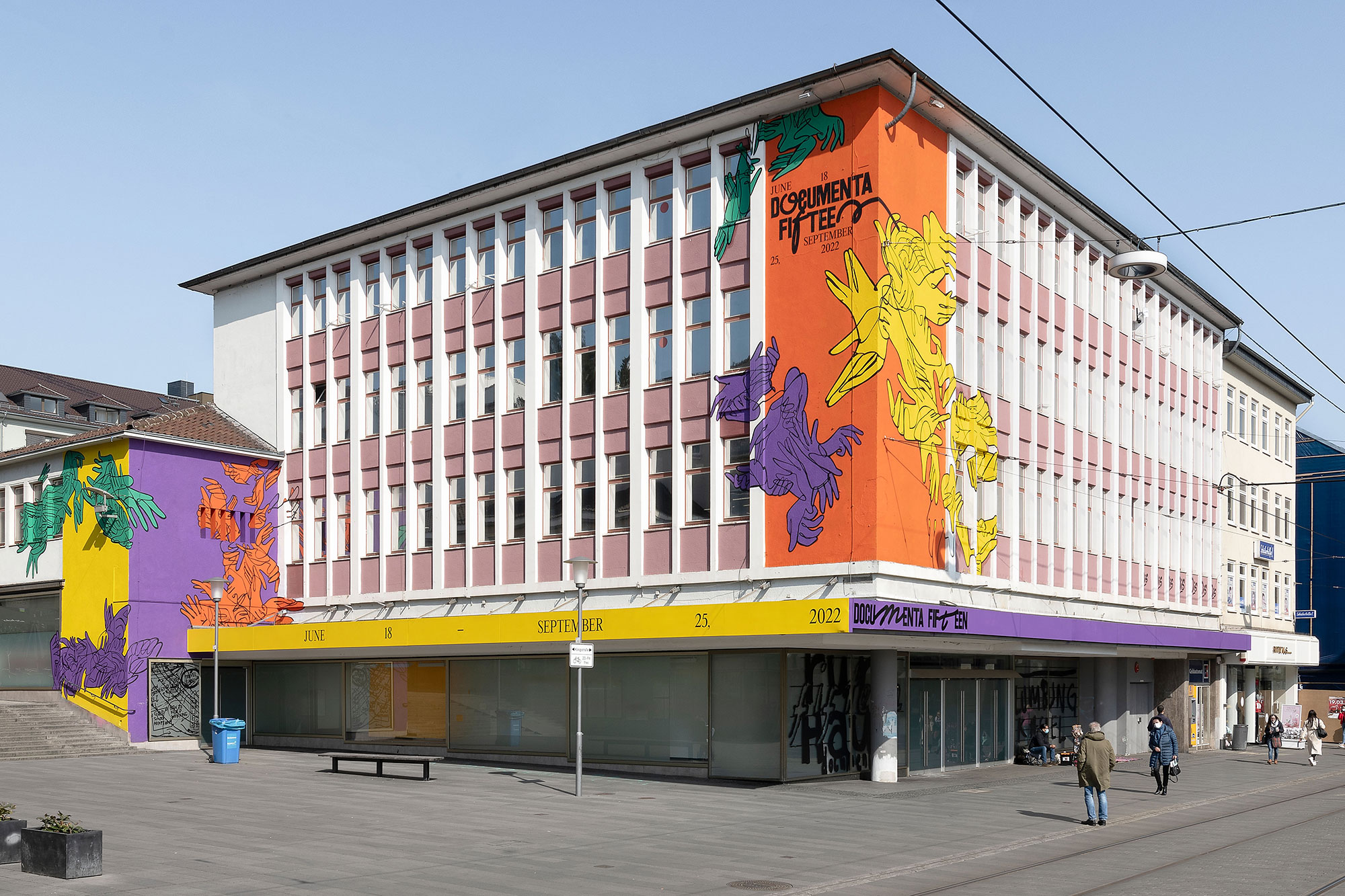News
Documenta Cancels Forum Addressing Antisemitism


On May 4, documenta fifteen suspended a series of three weekly talks examining topics of antisemitism and racism, announcing instead it “will open the exhibition and first let it speak for itself, as a basis for continuing the discussion in a productive manner.”
The decision came after the leader of the Central Council of Jews in Germany, Josef Schuster, criticized the forum in a letter to Germany’s cultural minister as having “a clear bias against antisemitism,” which caused several participates to consider withdrawing. In an open letter published by e-flux on May 7, documenta fifteen’s artistic directors ruangrupa and some of the forum’s organizers wrote that the accusations against the exhibition and the forum itself, “render a free and productive discussion impossible.”
The first of the three-hour discussions in the forum titled “We need to talk! Art – Freedom – Solidarity,” was to be held on May 8, and was due to feature artist Hito Steyerl and cultural theorist Diedrich Diederichsen, who along with a panel of guests, were invited to discuss “how and where German and international discourses on antisemitism and racism diverge.” Subsequent discussions were to address “the role of antisemitism and anti-antisemitism in postcolonial discourse” and “anti-Muslim and anti-Palestinian racism,” and were to feature intellectuals and scholars whose expertise spans related topics from 20th-century history to sociology, philosophy, postcolonial theory, the relations of European minority communities, Holocaust studies, antisemitism, Islamic studies, and other related fields.
Ruangrupa’s open letter indicated discontent with the decision to cancel the forum, which they wrote had been “intended to confront and problematize the accusations in their full breadth moving beyond entrenched institutional positions.” Their letter highlights the problematic origins of the recent controversy around the participation of several Palestinian artists, which were initially made in January by a person with ties to an extremist group on their blog claiming to be the “Alliance Against Antisemitism Kassel”—though no such group officially exists— and which were then circulated by the national media in Germany. Ruangrupa’s letter details the inaccuracies, false characterizations, and racist slurs against the participants by the blog’s author, which similarly were unnoted by the rightwing press that circulated reports of documenta fifteen participants’ presumed political views based on their ethnic heritage.
In their criticism of the Central Council’s letter to the cultural minister, ruangrupa described how the forum organizers had consulted and fully informed the Jewish organization about the forum, and individuals with affiliations with the Council were invited to participate. However, according to ruangrupa, the Council and others in Germany objected to the “multi-directional conceptualization” of the forum, and that efforts to “effectively deplatform recognized scholars whose views they don’t share” illustrated why it is difficult in Germany “to bring both perspectives—the one affected by antisemitism and the one affected by anti-Muslim and anti-Palestinian racism—into conversation.”
The attempt by ruangrupa to bring participants from the Global South into the European cultural discourse at documenta fifteen has highlighted an ongoing issue around the topic of Israel and Palestine in the German context, where the parliament passed a 2019 law outlawing federal funding for groups or individuals that support for the Palestinian-led Boycott, Divestment, and Sanctions (BDS) movement. In recent years, numerous artists and intellectuals have been censored or silenced, including artist Walid Raad, postcolonial theorist Achille Mbembe, and even the director of Berlin’s Jewish Museum, Peter Schäfer. Noting the bad-faith accusations and smears by pro-Israel groups against documenta fifteen and its participants, ruangrupa noted in their letter: “The preliminary failure of the forum is thus also a failure of the German debate on antisemitism and racism.”







